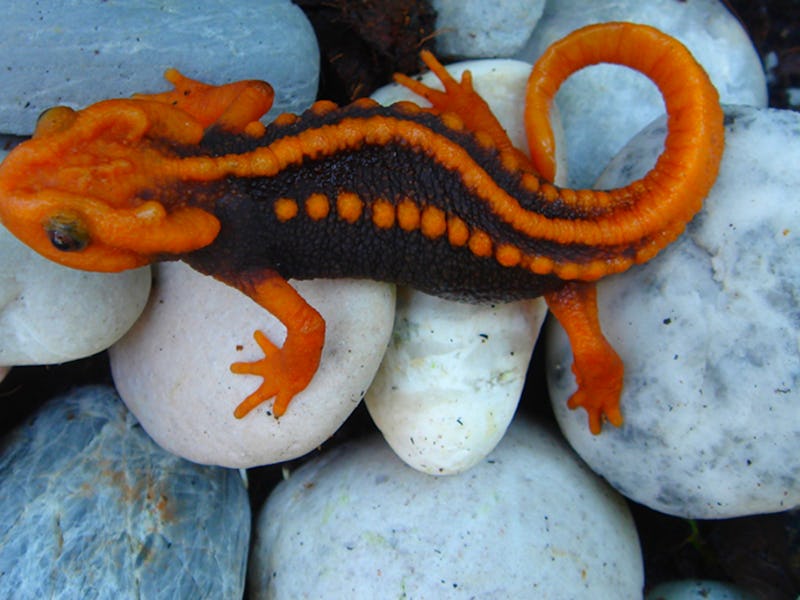The name of a recently discovered, lumpy-headed newt is perfect for those impatient for the May debut of Star Trek: Discovery and the rumored Klingon captain of the U.S.S. Discovery. The “Klingon newt,” latin name Tylototriton anguliceps, is what Lieutenant Worf would look like if he shrunk down, turned into a newt, and became adorable. This newt is one of the 163 newly found species debuted Monday by the World Wildlife Fund.
All 163 of these discovered species were uncovered in the Greater Mekong region, which covers parts of Laos, Thailand, Myanmar, Vietnam, and Cambodia. Of these species, three mammals, nine amphibians, 11 fish, 14 reptiles, and 126 plants were identified for the first time. The Klingon newt is in the company of other dazzling animals like the “Ziggy Stardust” snake and the wooly-headed bat.
It was discovered by a team lead by Thai biologist Porrawee Pomchote and is only the fourth species of newt to be found in Thailand. With a dorsal ridge and red splattered markings, this newt is typically between six and seven centimeters long.
Checks out to me.
The Greater Mekong region is famous for being a site to find newly discovered species. According to the World Wildlife Fund, between 1997 and 2015 there have been 2,409 new species discovered in the region. That there are so many species left to be discovered shouldn’t come as a surprise — some scientists surmise that 99.9 percent of species are currently unnamed and undiscovered.
But although it’s a hotbed of biological diversity, the Greater Mekong region is also threatened by overdevelopment, poaching, and pollution. The Klingon newt is particularly at risk because of the effects of deforestation and pesticide use in the area. As amphibians, they have porous skin, which makes it easy for them to absorb pesticide.
“It is rather lucky that all newt populations in Thailand are distributed in many protected areas like national parks or wildlife sanctuaries,” an optimistic Pomchote said in a statement to the WWF. “But I strongly support raising awareness of the incredible biodiversity of the region and the need to protect it.”
